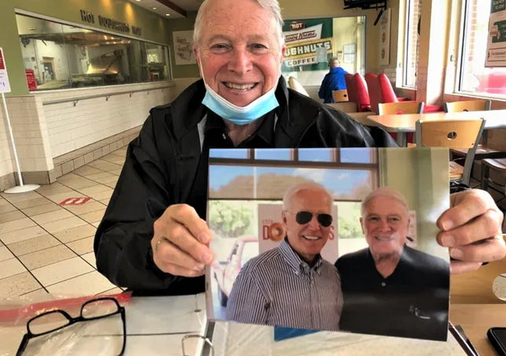SC Dems: Being first primary in '24 could be big boon to economy, voter turnout
- Bob Montgomery
- Dec 8, 2022
- 3 min read
Becoming the first to hold a Democratic presidential primary in 2024 would have a huge economic and political impact on South Carolina. The Palmetto State has turned the tide for most of the recent presidential campaigns, the party's chairman said.
"I do think the significance of this cannot be underestimated or oversold," S.C. Democratic Party Chairman Trav Robertson said Tuesday. "It is a big win for South Carolina, wherever you stand on the political spectrum."

For then-candidate Joe Biden In 2020, after early losses in Iowa, New Hampshire, and Nevada, it was a primary victory in South Carolina that propelled him eventually to the White House.
South Carolina being the first primary state is not a done deal yet. The Democratic National Committee must approve the recommendation when it meets Feb. 2-3, Robertson said.
Last week, the Democratic National Committee Rules and Bylaws Committee recommended DNC approval of President Biden’s proposal to overhaul the calendar that has long recognized Iowa caucuses and New Hampshire's primary as the first states to hold contests.
Biden, in a letter ahead of the meeting, urged Democrats to give Black voters a “louder and earlier voice” in the primary by elevating heavily African American South Carolina, a state that was crucial to his 2020 presidential nomination.
Robertson said DNC Chairman Jaime Harrison, House Majority Whip Jim Clyburn, and national DNC rules committeewoman Carol Fowler – all from South Carolina – played a major role in convincing others to agree to the move.
"It's really a clear indication of what teamwork can do," Robertson said. "Working the back rooms was a team effort."
The recommended 2024 calendar begins with South Carolina voting on Feb. 3, New Hampshire and Nevada on Feb. 6, Georgia on Feb. 20, and Michigan on Feb. 27.
Republicans have already set their 2024 presidential nominating calendar, keeping Iowa first.
Robertson said being first in the nation will bring an economic boost to hotels and restaurants across South Carolina and raise the level of voter engagement across the political spectrum.

"Every time we have a primary in South Carolina, it increases the political intelligence of our communities and that's a positive thing," he said.
Although known as a red state, higher voter engagement could boost Democratic voter turnout and help spur more candidates to run for office at the local level, he said.
David Woodard, a retired Clemson University political science professor, said South Carolina can expect to see presidential campaigns and media presence much earlier than in previous cycles when South Carolina followed Iowa and New Hampshire.
"It will begin in January 2023," he said. "We're kind of used to that, being the first in the South. If we're first in the nation, that media sun is going to burn really bright."
He said putting South Carolina first makes political sense.
"A lot of the spotlight has been on the Republican Party because it's a Republican state," he said. "But it's important to Democrats because Black voters determine a lot of the outcomes. I don't think a Democrat will carry South Carolina any time soon, but we will be very influential in their party's process."
Glenn Reese of Spartanburg, a former 29-year veteran of the state Senate, said South Carolina was instrumental in electing six of the most recent presidents – three Democrats, Bill Clinton, Barack Obama, and Biden; and three Republicans, George H.W. Bush, George W. Bush, and Donald Trump.
"Everybody's starting to realize the Iowa caucuses and New Hampshire primary doesn't have much impact," Reese said. "South Carolina resembles more of the true overall population of the United States."
Reese owns the Krispy Kreme doughnut shop in Spartanburg, a popular stopping point for Democratic presidential hopefuls. Reese was a Democrat senator from Spartanburg until he was defeated by Republican challenger Josh Kimbrell in 2020.
"Biden's last rally that put his campaign over the top was in Spartanburg at Wofford (College)," he said. "Trump's victory speech was at the Marriott Hotel in Spartanburg. One of Obama's strongest rallies was at Converse College (now Converse University) in Spartanburg.
"I tell people the road to the White House comes up South Church Street (in Spartanburg)," Reese added. "If you don't come up South Church Street, you don't get elected president."
Kathryn Harvey, chairwoman of the Spartanburg County Democratic Party, said being the nation's first primary should help boost interest and voter turnout, as well as fundraising efforts for candidates across South Carolina.

Statewide turnout in the Nov. 8 election was 50.8% and Democrats across the board failed to make dents in the Republican majority.
"Bringing the primary here would be a huge opportunity to engage new voters – nothing but good energy pointing to South Carolina Democrats at a time when we truly need it," she said.
Published Dec 8 by Spartanburg Heard Journal / Bob Montgomery





Comments